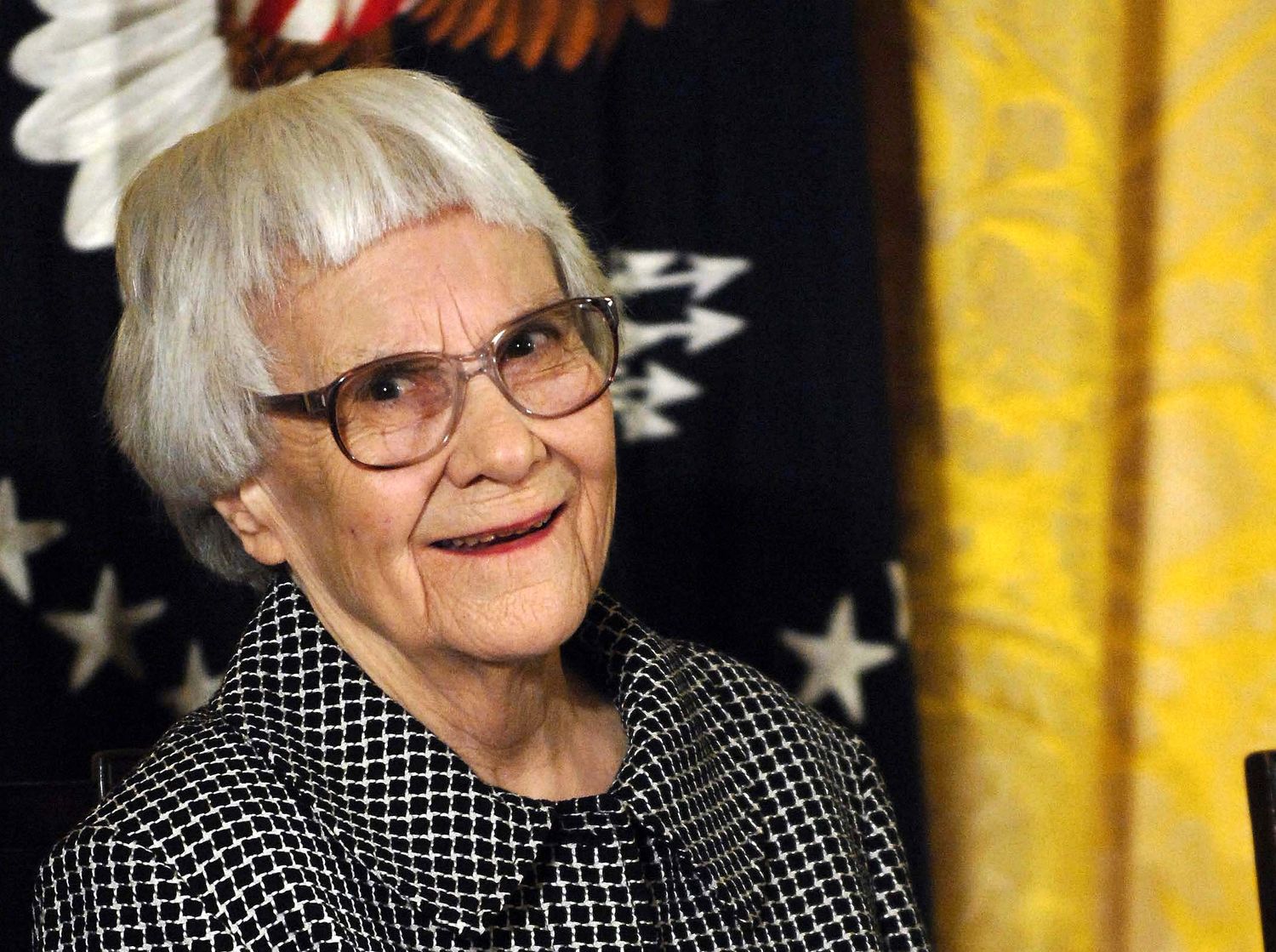Harper Lee: The Literary Legend Who Left An Indelible Mark On American Literature
When you think about classic American literature, one name that always pops up is Harper Lee. This extraordinary writer captured the hearts of millions with her timeless novel 'To Kill a Mockingbird.' Her work remains relevant even today, resonating with readers across generations. Through her storytelling, Lee tackled complex issues like racial injustice and moral integrity, leaving an indelible mark on the literary world.
Harper Lee isn't just a name; she's a symbol of courage and resilience. Born in a small town in Alabama, she rose to prominence with her Pulitzer Prize-winning novel, which became a cultural phenomenon. Her work has inspired countless readers and continues to be studied in schools worldwide. It's not just about the story; it's about the messages embedded within the narrative that still resonate deeply today.
Her life and career are a testament to the power of words and the importance of standing up for what's right. In this article, we'll dive deep into the life of Harper Lee, exploring her background, her most famous work, and the legacy she left behind. Whether you're a fan of her writing or simply curious about her impact, this article will provide you with insights you might not have known before.
- Jason Aldean 2025 Tour Get Ready For The Ultimate Country Music Adventure
- Chad Johnson Net Worth The Untold Story Of Success And Wealth
Biography of Harper Lee
Before we dive into her literary achievements, let's take a moment to get to know the woman behind the pen. Harper Lee was born on April 28, 1926, in Monroeville, Alabama. Her full name was Nelle Harper Lee, and she grew up in a small Southern town that would later inspire the setting for her most famous novel.
Here's a quick glimpse into her early life:
| Full Name | Nelle Harper Lee |
|---|---|
| Birthdate | April 28, 1926 |
| Place of Birth | Monroeville, Alabama |
| Education | University of Alabama |
| Occupation | Author |
| Notable Work | To Kill a Mockingbird |
Growing Up in Monroeville
Lee's childhood in Monroeville played a significant role in shaping her worldview. She was the youngest of four children and grew up during a time when racial segregation was still prevalent in the South. Her father, Amasa Coleman Lee, was a lawyer, which influenced her understanding of justice and morality. Growing up, she was known for her tomboyish nature and love for reading.
- Kelley Earnhardt Net Worth 2024 A Deep Dive Into The Life Legacy And Wealth
- Brooke Dorsay A Rising Star In The Entertainment World
Harper Lee's Writing Journey
Lee's journey as a writer wasn't always straightforward. After graduating from the University of Alabama, she moved to New York City to pursue her passion for writing. It was there that she began working on what would become her magnum opus, 'To Kill a Mockingbird.'
From Aspiring Writer to Pulitzer Prize Winner
Her breakthrough came in 1960 when 'To Kill a Mockingbird' was published. The novel was an instant success, earning critical acclaim and commercial success. It wasn't just a story; it was a powerful commentary on societal issues like racism and inequality. Lee's ability to weave complex themes into a simple narrative was nothing short of remarkable.
- The novel won the Pulitzer Prize for Fiction in 1961.
- It has been translated into more than 40 languages.
- The book has sold over 40 million copies worldwide.
The Impact of 'To Kill a Mockingbird'
Let's talk about the elephant in the room—'To Kill a Mockingbird.' This novel isn't just a book; it's a cultural touchstone. It tells the story of Scout Finch, a young girl growing up in the fictional town of Maycomb, Alabama, during the Great Depression. Through Scout's eyes, readers witness the injustices of the time, particularly the trial of Tom Robinson, a Black man falsely accused of raping a white woman.
Themes and Messages
The novel explores themes of racial injustice, moral growth, and the loss of innocence. Lee's ability to tackle these heavy topics through the perspective of a child is what makes the story so powerful. Here are some key takeaways:
- Racial Injustice: The trial of Tom Robinson highlights the systemic racism present in the South.
- Moral Integrity: Atticus Finch, Scout's father, serves as a moral compass, teaching his children the importance of standing up for what's right.
- Empathy: The novel emphasizes the need to understand others' perspectives and treat everyone with kindness.
Harper Lee's Legacy
Lee's legacy extends far beyond 'To Kill a Mockingbird.' Her work has inspired countless writers and readers alike. Even though she only published one novel during her lifetime, her impact on literature is undeniable.
Influence on American Literature
Lee's novel has become a staple in American literature, often compared to works by other great Southern writers like William Faulkner and Flannery O'Connor. Her ability to capture the essence of the South and its complexities is what sets her apart. Here are some ways her work has influenced the literary world:
- She paved the way for other writers to tackle difficult social issues.
- Her novel is frequently studied in schools, ensuring that her message reaches new generations.
- She inspired a new wave of Southern literature that continues to thrive today.
Harper Lee's Later Years
After the success of 'To Kill a Mockingbird,' Lee largely retreated from the public eye. She spent her later years in Monroeville, living a quiet life. Despite her reclusive nature, she remained an influential figure in the literary world. In 2015, a second novel, 'Go Set a Watchman,' was published, sparking renewed interest in her work.
Controversy Surrounding 'Go Set a Watchman'
The publication of 'Go Set a Watchman' was met with mixed reactions. Some saw it as a continuation of 'To Kill a Mockingbird,' while others questioned its authenticity. Regardless of the controversy, the novel provided new insights into Lee's creative process and the evolution of her characters.
Harper Lee's Awards and Recognition
Throughout her career, Lee received numerous awards and honors for her contributions to literature. Here are some of the most notable ones:
- Pulitzer Prize for Fiction (1961)
- Presidential Medal of Freedom (2007)
- National Medal of Arts (2010)
Why These Awards Matter
These accolades aren't just about recognizing her talent; they're about acknowledging the impact of her work on society. Lee's ability to address complex issues through her writing has left a lasting impression on readers and writers alike.
Harper Lee's Influence on Modern Society
Even today, Lee's work remains relevant. In a world still grappling with issues of race and inequality, her message of empathy and understanding is more important than ever. Her novel continues to inspire conversations about justice and morality.
Relevance in Today's World
Here's why 'To Kill a Mockingbird' is still relevant:
- It addresses issues that are still present in society today.
- It encourages readers to think critically about the world around them.
- It promotes empathy and understanding, values that are essential in building a better future.
Harper Lee's Personal Life
Beyond her writing, Lee was known for her close friendship with fellow author Truman Capote. The two grew up together in Monroeville and remained friends throughout their lives. Lee even assisted Capote with his research for 'In Cold Blood,' further cementing her place in literary history.
Friendship with Truman Capote
Lee and Capote's friendship was a source of inspiration for both writers. Capote once said, "Nelle is one of the most gifted people I know," highlighting the mutual respect they had for each other's work.
Conclusion: The Enduring Legacy of Harper Lee
In conclusion, Harper Lee's contributions to literature are immeasurable. Through her writing, she tackled difficult topics with grace and courage, leaving a lasting impact on the world. Her work continues to inspire readers and writers alike, proving that words have the power to change hearts and minds.
So, what can you do next? Share this article with someone who might appreciate Lee's work. Dive deeper into her novels and explore the themes she addressed. And most importantly, remember the importance of empathy and understanding in our daily lives. Harper Lee's legacy lives on, and it's up to us to carry her message forward.
Table of Contents
Article Recommendations
- Jason Aldean 2025 Tour Get Ready For The Ultimate Country Music Adventure
- Larry Bird Net Worth The Journey Of A Basketball Legend



Detail Author:
- Name : Karelle Shields
- Username : dayton.wisoky
- Email : lawson41@yahoo.com
- Birthdate : 1990-01-22
- Address : 131 Haag Forest Romanfurt, IL 43073
- Phone : 1-458-458-6040
- Company : Kilback-Jerde
- Job : Industrial Equipment Maintenance
- Bio : Dolorem voluptatem nam vero. Dolor molestiae earum saepe sequi animi est aut pariatur. Quod distinctio ut neque omnis illum nam.
Socials
linkedin:
- url : https://linkedin.com/in/carolanne_buckridge
- username : carolanne_buckridge
- bio : Est nam dolor quo omnis a qui.
- followers : 594
- following : 704
twitter:
- url : https://twitter.com/buckridgec
- username : buckridgec
- bio : Omnis est porro dolores aliquid. Autem ex minima optio ipsum.
- followers : 3840
- following : 1817
tiktok:
- url : https://tiktok.com/@carolanne_dev
- username : carolanne_dev
- bio : Vel doloremque enim qui impedit.
- followers : 6235
- following : 2366
instagram:
- url : https://instagram.com/carolanne_buckridge
- username : carolanne_buckridge
- bio : Occaecati dolor voluptatem voluptatem totam. Id doloremque labore culpa.
- followers : 3653
- following : 471
facebook:
- url : https://facebook.com/buckridgec
- username : buckridgec
- bio : Ullam autem provident quo reprehenderit.
- followers : 2212
- following : 1704